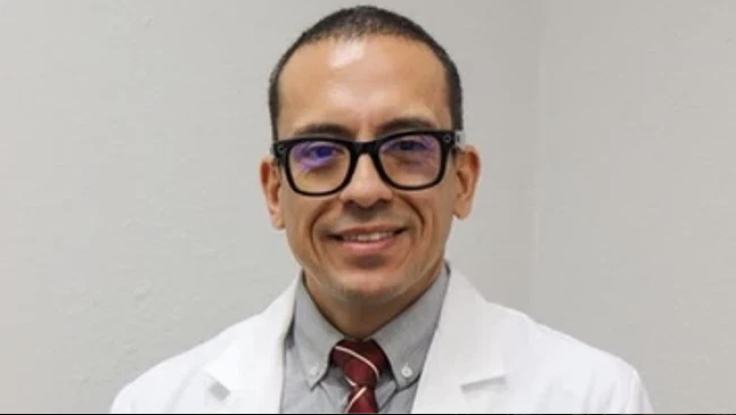Ken Paxton Takes Legal Action Against El Paso Gender Clinic
Ken Paxton’s Legal Move Against El Paso Gender Clinic
In recent days, the landscape of gender-affirming care for minors has taken a significant turn, creating ripples across Texas and beyond. Texas Attorney General Ken Paxton has taken decisive legal action against a clinic in El Paso that provides gender transition treatments to minors. This development has raised numerous questions about the implications and broader context of such legal actions. Let’s unpack the details and see what this means for the future of healthcare for transgender youth.
What’s the Background?
First off, let’s set the scene. Gender identity and the rights of transgender individuals have become hot topics in the media and political arenas over recent years. With a growing number of minors seeking gender transition treatments, health care providers are standing at a crossroads. For many young people, accessing this kind of care can be life-saving or affirming. But opposing views often stem from concerns about a minor’s ability to make such monumental decisions and the long-term implications of medical interventions.
Ken Paxton, who has a history of opposing LGBTQ+ rights, has now set his sights on a specific El Paso clinic. The clinic in question has been providing hormone therapies and other gender-affirming procedures. Paxton argues that these practices expose minors to potential health risks and trauma, claiming that medical professionals should not assist in transitioning at such a young age.
What Are the Legal Details?
Now, let’s dig deeper into the legal framework surrounding this case. Ken Paxton filed a lawsuit aiming to halt the clinic’s operations, asserting that the treatment methods violate Texas state laws regarding informed consent and medical ethics. The lawsuit does not stop at the clinic; it extends to the medical professionals involved as well, potentially putting their licenses and livelihoods at risk.
The crux of Paxton’s argument is based on the assertion that life-altering decisions regarding gender transition should not be made by minors, who may not fully comprehend the impacts of such decisions. Moreover, he is pushing for a legal precedent that could discourage other clinics from offering similar treatments, essentially trying to create a ripple effect throughout the state.
The Impact of Legal Actions
Legal actions of this nature can set a dangerous precedent. If Paxton’s lawsuit succeeds, it may trigger a wave of similar challenges across the country. Many advocates worry about the chilling effects this would have on healthcare providers who wish to support transgender minors.
One might wonder: what does this mean for the youth in Texas? For countless minors struggling with their gender identity, access to supportive care is crucial. Denying such care could exacerbate mental health issues like anxiety and depression, which are already prevalent in the transgender community.
The Response from the Community
Naturally, the community’s response has been anything but silent. Advocates for LGBTQ+ rights have rallied against Paxton’s legal action, arguing that it not only undermines the healthcare needs of minors but also discriminates against transgender individuals. They highlight that denying treatment is not about protecting minors; rather, it reflects broader societal biases against gender-affirming care.
Supporters of the clinic argue:
- Access to gender-affirming care can reduce feelings of isolation.
- Treating gender dysphoria can significantly improve mental health outcomes.
- It is critical to trust healthcare providers and their expertise.
On the other side, there are concerns—and perhaps a bit of confusion—about what constitutes informed consent for young individuals in medical situations. Paxton’s supporters often argue that minors lack the maturity and understanding needed to make such significant decisions about their health and futures.
Where Do We Go from Here?
With so much uncertainty surrounding this legal battle, many are asking how Texas will follow through on these matters. Will this case ignite legislative action against similar clinics moving forward? Or will advocates successfully halt these initiatives, pushing for protections for transgender youth?
Some experts suggest that this is just the tip of the iceberg. Other states have already started to consider or enact similar laws, so it’s a question of whether Texas will now lead the charge against gender-affirming care or provide a model for others to follow.
Looking Ahead: The Role of Healthcare Providers
Healthcare providers may find themselves in a precarious situation as this legal saga unfolds. Considering the healing and support that gender-affirming treatments offer, doctors may face substantial moral and ethical dilemmas. Do they stand by their professional instincts to provide care, despite potential legal repercussions? Or do they heed these legal warnings and restrict services, thereby limiting access for those in need?
The future of gender-affirming care will likely come down to the balance of rights—those of the minors seeking treatment and those of healthcare professionals providing it. Moreover, the implications for families navigating these complex decisions will echo throughout communities.
Conclusion
Ken Paxton’s legal action against the El Paso gender clinic serves as a microcosm of the growing nationwide debate regarding minors and gender transition treatments. While the immediate implications of this lawsuit may appear local, they carry significant weight for transgender rights across America. As we witness the evolving healthcare landscape, it is crucial to balance safeguarding minors with ensuring their right to care. This ongoing conversation will shape both policy and personal lives for years to come.
FAQs
1. What prompted Ken Paxton’s lawsuit against the El Paso gender clinic?
Ken Paxton is challenging the legality of gender transition treatments provided to minors, arguing that they pose risks to their health and well-being.
2. What services does the El Paso clinic provide?
The clinic provides gender-affirming treatments, including hormone therapies and other related medical services for transgender minors.
3. How might this lawsuit affect transgender youth in Texas?
If successful, the lawsuit could restrict access to essential healthcare services for transgender minors, potentially worsening mental health outcomes.
4. What is informed consent, and why is it a topic of debate in this case?
Informed consent is the process of ensuring a patient understands the risks and benefits of a treatment before proceeding. The debate revolves around whether minors can truly understand the implications of their healthcare decisions.
5. How are healthcare providers responding to these legal challenges?
Many healthcare providers are emphasizing the importance of supporting transgender youth and expressing concern over potential legal repercussions that may prevent them from offering necessary care.







